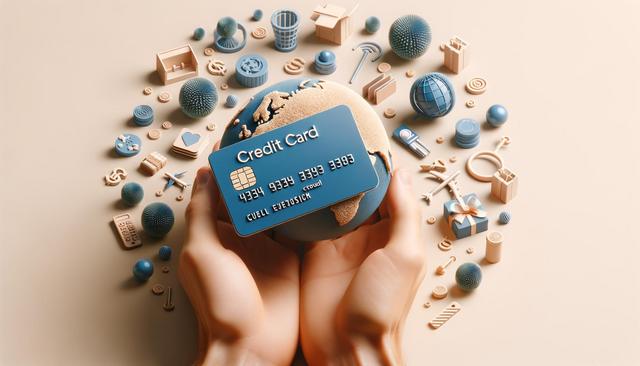How Credit Cards Work
At their core, credit cards are a form of revolving credit that allows users to make purchases and pay for them at a later time. Each card comes with a credit limit, which is the maximum amount you can borrow. When you use your credit card, you are essentially borrowing money from your card issuer with the agreement to repay it either in full by the statement due date or over time with interest.
Credit cards typically come with various fees and interest rates. Understanding these components is essential to avoid unnecessary costs. Key elements include:
- Annual Percentage Rate (APR): The interest rate charged when balances aren’t paid in full.
- Minimum payment: The smallest amount you must pay monthly to remain in good standing.
- Grace period: The time during which no interest is charged on new purchases if the balance is paid in full.
Choosing a card that offers easy credit card processing and clear terms is crucial. This makes it simpler to manage your spending and payments without confusion or hidden surprises.
Benefits of Using Credit Cards Responsibly
When used correctly, credit cards offer a range of benefits that go beyond just convenience. They can help users build a strong credit history, which is essential for securing loans, renting apartments, or even qualifying for certain jobs. A good credit score reflects financial responsibility and opens up better borrowing opportunities.
Credit cards also provide:
- Purchase protection and fraud liability coverage.
- Rewards programs that offer cashback, points, or travel perks.
- Access to emergency funds when cash isn’t readily available.
Moreover, many credit cards now feature instant credit card processing, allowing transactions to be approved within seconds. This is especially helpful for both consumers and merchants, ensuring a smooth and secure checkout experience.
Choosing a Credit Card That Fits Your Needs
With the wide variety of credit cards available, it’s important to select one that aligns with your financial habits and goals. Some cards are designed for people who want to transfer balances, while others are tailored for those who travel frequently or spend heavily in specific categories like groceries or gas.
Here are a few factors to consider when choosing a card:
- Annual fees vs. rewards: Are the benefits worth the cost?
- Interest rates: Especially important if you plan to carry a balance.
- Acceptance and processing speed: Look for cards with quick credit card processing capabilities.
Additionally, if you’re a business owner or frequently deal with customer payments, selecting a provider that offers the cheapest credit card processing can significantly reduce your transaction fees over time.
Tips for Managing Your Credit Card Wisely
Responsible credit card use is key to avoiding debt and maximizing benefits. One of the most important strategies is to pay off your balance in full each month. This helps you avoid interest charges and keeps your credit utilization ratio low, which positively impacts your credit score.
Other helpful tips include:
- Setting up automatic payments to avoid late fees.
- Monitoring your spending through mobile apps or online banking.
- Limiting the number of cards you own to simplify management.
Easy credit card processing tools, such as digital wallets and contactless payments, can also help streamline everyday transactions and keep your finances organized. Being proactive and informed can prevent common pitfalls associated with credit card use.
Credit Card Processing for Businesses
For business owners, choosing the right credit card processing solution is vital to maintaining profitability and customer satisfaction. Instant credit card processing allows businesses to complete sales efficiently, reducing wait times and improving the overall customer experience. In today’s fast-paced retail and service environments, this speed is often expected by consumers.
When assessing your options, consider the following:
- Transaction fees and monthly service costs.
- Hardware and software compatibility with your existing systems.
- Security features to protect customer data.
Finding the cheapest credit card processing provider doesn’t always mean compromising on quality. Many solutions now offer a balance between affordability and performance, especially for small and medium-sized enterprises. Quick credit card processing capabilities are also crucial for businesses with high transaction volumes, such as restaurants or online stores.
Conclusion
Whether you’re an individual looking to manage personal finances or a business seeking efficient payment solutions, understanding credit cards and how processing works is essential. By focusing on features like easy credit card processing, low fees, and responsible usage, you can make informed decisions that support your financial well-being. Take time to evaluate your needs, compare options carefully, and use your card as a tool for building a secure financial future.




Leave a Reply